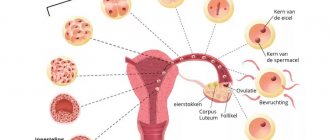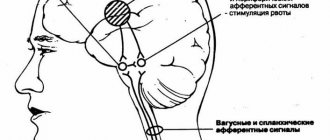In this article we will try to understand what apathy is in humans. The followers of Stoicism in Ancient Greece used the term apatheia, that is, dispassion, to designate the way of thinking and actions of the sages of this philosophical school. These people were alien to emotions from certain phenomena inherent in ordinary mortals.
Nowadays, apathy is a mental state in which a person does not want anything, life is uninteresting and boring for him, everything around him is insipid and seems boring. He experiences a hopeless lack of activity, complete emotional inaction, detachment, lack of goals and interest in the future.
What is meant by the term apathy?
Translated from Greek, apathy means dispassion (ἀ is the negation of “without”, and πάθος means passion, excitement). In the scientific understanding, apathy is a psycho-emotional state, the main manifestations of which are indifference, indifference, detachment from current events, lack of emotions and inaction. People most often interpret apathy as laziness, i.e. reluctance to do or engage in anything. In fact, people only take into account external manifestations of apathy that directly concern them and often irritate those around them. Who would like a creature at home or at work that is not interested in anything, inactive and detached from worries? And this while you are making incredible efforts to keep your family, business, and working for yourself and “that guy” afloat? But everything is not so simple, apathy towards life is not a fault, but a misfortune for a person who is gradually entering this state. Many scientists consider apathy as the initial stage of depression, which can ultimately lead to catastrophic changes in a person's personality. Without professional psychological help, it is quite difficult and almost impossible to restore interest in life to an apathetic person. Therefore, treat the laziness of a loved one as a serious violation of his psycho-emotional state and seek help from specialists as early as possible.
It must be remembered that apathy can also be observed in healthy people, for example, it can be a special character trait in a melancholic or aging person. In these cases, reduced social and psycho-emotional activity can be considered the norm. First of all, the unexpected and inexplicable passivity of a recently active, sociable and hardworking person should be alarming. According to ICD-10, apathy is classified as “symptoms and signs of deviation from the norm in the cognitive sphere, behavior and emotional state.”
How is treatment carried out?
At the early stage of apathetic depression, treatment can be carried out independently or with the help of loved ones who control the process. Relatives should help change the environment to gain new emotions. The easiest way to do this is if the cause of apathetic depression lies in everyday problems and banal fatigue. Men and women who shared their experiences described successful attempts to overcome emotional decline. They were helped by travel, vacations, and a change in the circle of people they communicated with.
But it is best to immediately see a specialist who will monitor the progress of treatment and prescribe auxiliary means. The antidepressants luoxetine or citalopram will be helpful in such situations. These drugs relieve a person of depression, giving vitality.
The Korsakov Clinic helps everyone who turns to them for help with apathetic depression. Therefore, there is always a way out, regardless of the situation!
What are the most typical symptoms of apathy?
Symptoms of the state of apathy can be of varying degrees of intensity - from a mild decrease in the emotional background to complete lack of will (abulia), adynamia, refusal to eat and even fulfill natural physiological needs. Somatic manifestations of apathy are mild, except in cases where it is a consequence of an exacerbation of chronic ailments or an underlying disease. Then the entire symptom complex corresponds to the symptoms of the underlying disease.
External symptoms of an apathetic state are: • Poor facial expressions. • Automaticity in movements. • Monotonous speech. • Slow reactions, including responses to questions. • Reduced sociability. • Loss of interest in work and active recreation. At the same time, the person continues to fulfill his duties - go to work, communicate with friends, work with children, i.e. perform their social functions, but all this is rather out of habit, without inner desire and pleasure. Interest in life gradually fades away, and a person does not have the strength and mental energy to overcome laziness and growing melancholy. By the way, the phenomenon of melancholy in the modern interpretation corresponds to a state of depression, although at the everyday level it is often understood as apathy. Mental symptoms are much more significant and include the following symptoms: • Weakness to the point of complete impotence. • Quick fatigue even from the simplest actions. • Feeling of constant fatigue, when even doing nothing becomes tiring. • Decreased or complete lack of interest in previously favorite activities and hobbies, including games and entertainment. • Depressed or depressed mood. • Closedness, desire for solitude. • Severe drowsiness even after a full night's sleep. • Discomfort in sensations with a predominance of gloomy thoughts, hopelessness and depression. • Decreased appetite, sometimes irritation from the smell, taste and appearance of certain foods or dishes. • Problems with memory and concentration. • Lack of initiative in all areas of life, even in sexual relationships.
It is important not to confuse low mood in a healthy person with symptoms of apathy. If in the first case the deterioration in mood is of a short, transient nature, then the apathetic state is permanent or predominant. If it lasts more than 2 weeks, it’s time to sound the alarm. Moreover, it is simply impossible not to notice changes in a person during apathy, they are so striking. The feeling is that all vital forces are leaving a person. The patient believes that nothing depends on him in this life, doing something and fighting is pointless, all his attempts to solve something or achieve something are doomed to failure. So why try, it’s better to hide from reality, do nothing and not worry about anything. Such psycho-emotional departure from life can ultimately lead to physical decline of body functions and premature death. After all, life is movement in any form - emotional and behavioral reactions, physical activity, normal metabolism with a balance of energy expenditure and synthesis. All this is movement at different levels - social, organismal and molecular. And vice versa, apathy is adynamia in any location, and in extremely advanced cases it is the coding of the body for self-destruction.
Why does apathy occur?
Apathy itself is not a disease, it is the body's response to stress. Under severe nervous tension, or after nervous stress, the human psyche turns on a defense mechanism, which causes a state of indifference. In this case, it is short-term, and the person quickly returns to normal.
What are the causes of apathy?
The reason for the development of apathy in a healthy person is most often the repeated inability to solve problems that arise in the family, team, business, creativity or other areas of activity. For example, unsuccessful and lengthy visits to authorities, unsuccessful job searches, problems with raising difficult children in adolescence, etc. Constant failures in people with an unhardened psyche lead to the desire to give up on everything, decide that the problem is not so important and stop fighting. Only mentally strong people are able to resist negativity and stress, while many simply give up, become convinced of the meaninglessness of their actions and retreat from reality into a state of apathy. I can name the most common reasons for the development of apathy in people. These are phenomena such as: • Constant and prolonged mental stress. • Lack of proper rest. • Sudden, unexpected or unpleasant changes in life - the death of relatives and friends, dismissal, divorce, retirement, moving to another place of residence, etc. • Professional burnout. • Premenstrual syndrome. • Pregnancy and childbirth. • Constant feelings of guilt and shame for any kind of socially disapproved needs, including gambling addiction, alcohol addiction, being LGBT, etc. • Long waits for an important event (diagnosis, court ruling, critical review, assignment of a title, decision of the certification commission). • Taking hormonal, contraceptive, antiallergic and sedative medications. • Psychological pressure from loved ones and superiors. • Misunderstanding and lack of recognition from others. • Perfectionism, as the desire to achieve an ideal, and the idea that everything in the world should be perfect. Sooner or later, a perfectionist is faced with an imperfect reality and the futility of his attempts to improve it. And this is a direct path to apathy.
In addition, apathy can be a consequence of certain mental and somatic diseases: • Depression. • Schizophrenia and other central nervous system diseases. • Endocrine disorders leading to hormonal imbalance. • Various types of dementia. • Alzheimer's disease. • Immunodeficiency conditions, such as AIDS. • Oncological diseases and brain injuries. As you can see, there are many reasons for the appearance and development of the state of apathy, but in any case it requires a thorough examination, differential diagnosis and competent treatment from a specialist. With a mild form of apathy, you can limit yourself to a visit to an endocrinologist and a psychologist; for more pronounced symptoms, observation and treatment by a psychotherapist will be effective.
How is apathy treated?
If apathy is short-term (no more than 2 weeks) and transient in nature, and a person understands its causes, then to restore a normal mental state it is often enough to simply give yourself a break, step away from active activities for a while, rethink the circumstances that caused the apathy, look look at the situation from the outside and choose the right course of action. Good sleep, proper healthy nutrition with a sufficient amount of vitamins and minerals, switching attention to hobbies and active recreation can return a person to vigor, an active life position and the desire to solve problems that have arisen, and not brush them aside. If the state of apathy lasts more than 2 weeks, then even people with a strong will will not be able to cope with it on their own. In this case, the help of a doctor becomes simply necessary. Treatment should be carried out consistently and under the supervision of a specialist. This is especially important if the patient has slow speech, inadequate emotional reactions, impaired thinking and memory.
The desire of individuals to regain their previous activity and whet their interest in life with the help of alcohol will only worsen the situation - a hangover syndrome will also join the apathy, which together will finally plunge the patient into prostration. This method of “treatment” is categorically contraindicated, as is self-medication with antidepressants of the “one friend told me” type. The only thing you can afford is tonic teas. Psychotherapy for apathy combines, first of all, identifying the root cause of apathy, as well as verbal (verbal) and, if necessary, medicinal treatment methods. One of the most common diagnostic methods is Gestalt therapy. Without finding out the cause of the development of apathy, it is impossible to prescribe the correct treatment. For example, in case of endocrine disorders, it is necessary to restore the normal balance of hormones; in case of organic brain damage, the help of an oncologist or neurosurgeon may be needed. Without eliminating the root cause, effective treatment of apathetic conditions becomes simply impossible; it becomes purely symptomatic and does not have a long-term stable effect. For the purpose of diagnosis, the psychotherapist can prescribe consultations with other specialized specialists - oncologist, neurologist, endocrinologist, narcologist, as well as a number of studies: 1. General blood test. 2. Biochemical and hormonal examinations (thyroid and adrenal hormones, sex hormones). 3. MRI of the brain. 4. Tests for the presence of infections, etc.
Communication with a psychotherapist, his use of modern and proven effective techniques, a competent choice of tactics and treatment strategies are the key to its effectiveness. Medications are used only under the supervision of a doctor and when he sees it as appropriate.
Among the medications used to treat apathy are the following: • Stimulants in the form of nootropics, extracts of lemongrass and eleutherococcus. Prescribed for general lethargy and weakness. • Antidepressants are indicated for a combination of apathy and depression, as well as when there is a threat of transition from an apathetic state to a depressive state. • Vitamins as general strengthening agents and stimulants of nervous activity. • Diuretics are prescribed as dehydration therapy to relieve swelling of the brain due to traumatic injuries. • Tranquilizers and antipsychotics are prescribed in cases where destructive changes in the patient’s behavior and psyche are observed. The choice of drugs is dictated primarily by the cause and severity of the condition, individual characteristics and the predominance of one or another symptom. Much also depends on the patient himself and his environment. This is, first of all, normal, full sleep, proper nutrition, lack of stress, complete or at least partial cessation of bad habits, adherence to diet, work and rest, and moderate physical activity. In a word, this is called a healthy lifestyle.
Therapeutic measures
Therapeutic tactics for such patients are selected by the doctor after determining the form of the disorder and the severity of its symptomatic signs. Mild cases of apathy are treated without the use of medications. The patient is advised to improve his lifestyle: properly alternate between rest and physical activity, start playing sports, and regularly take walks outdoors. In this case, communication with friends, support from relatives, and travel help eliminate apathy.
A severe form of apathy requires consultation with a neuropsychiatrist. The treatment regimen for this condition includes a course of pharmacological medications and numerous psychotherapy sessions.
Untimely or incorrect treatment of complex forms of apathy often causes severe depression and suicidal attempts in the patient. Although the prognosis for such a disorder is often favorable, because apathy is quite treatable.









